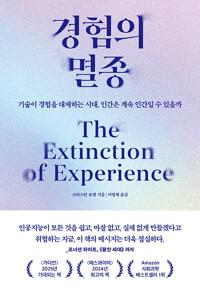책 이미지

책 정보
· 분류 : 국내도서 > 경제경영 > 기업 경영 > 무역
· ISBN : 9791159018893
· 쪽수 : 106쪽
· 출판일 : 2022-03-11
책 소개
목차
Preface 5
1. Introduction 11
2. Korean trade relations with the rest of the world 14
2.1 International legal tools for trade issues in Korea 15
2.2 Navigating the multi-layered system 16
2.3 Different approaches to Korean FTA negotiations 19
2.4 Korea and the Visegrad-Group 23
: how has the Korea-EU FTA changed the relationship
3. Inciting change at home and abroad 33
: the impacts of international trade agreements
3.1 Accommodating to FTAs in the domestic legal framework 33
3.2 Changes in domestic law to boost international trade 36
3.3 Influences of Korean trade law to East Asia 39
3.4 The Korean trade law and the North Korean issue 42
4. Promoting sustainable development through trade 45
4.1 What is sustainable development? 46
4.2 Environmental protection issues in international trade laws 48
4.3 Provisions on sustainability in the Korea-EU FTA 50
4.4 The promotion of ODA in trade agreements 54
5. The EU model: lessons and future prospects for Asia 56
5.1 The history and significance of the Treaty of Rome 57
5.2 Fundamentals of the European Single Market 63
5.3 The future of the European Single Market 69
5.4 Challenges: COVID-19 71
5.5 Can the European model be realised in East Asia? 81
6. Conclusion 88
Bibliography 94
Authors 103
책속에서
1. Introduction
Changes in a certain society may serve as catalysts for changes in related laws. With new technology or political system, any kind of economic change must be accompanied by legal change, because the economy is dependent on the support of the related law (Hadfield 2012). Many international trade works of countries are mainly based on their laws, and these laws can be distinguished by several standards. The international agreements are evaluated as the ‘social infrastructure’ for the trade issue, so-called ‘legal infrastructure’, for trade activities ? from multinational international laws such as WTO agreements to more preferential or bilateral international laws such as FTAs.
The Korean economy has developed upon its trade-oriented policies and related laws. Although the relationship between law and the development process is problematic and has been the subject of controversy for several decades (Sakar 2009), the Korean trade law has been the paramount ‘legal infrastructure’ for the economic development. The trade laws provided the fundamental basis for Korean trade activities and relevant domestic rules. Based on the multilateral trade laws such as the WTO agreements, the Asian financial crisis in the late 1990s gave the impetus the country to promote its preferential policy. The Korean government anticipated that Preferential Trade Agreements (PTAs), such as Free Trade Agreements (FTAs), could be an effective way to respond to the new trend of international trade orders (Kim 2013).
The international legal infrastructure for the trade works may even influence domestic rules of countries. In the case of Korea, when Korea started to make FTAs after the Asian Financial Crisis, its government believed that the international legal infrastructure on trade works would serve as an engine for invigorating its economy and domestic rules. This influenced further changes in Korean domestic laws and international trade laws. As such, based on some articles (such as Article 125) in the Korean Constitutional Law, there are several domestic rules for the Korean trade issue. Foreign Trade Act and Customs Act are the main acts among domestic trade laws, and many other detailed rules have been established upon the Korean trade policies and international trends. There are possibilities for domestic laws to be influenced by changes in national policies. However, the influential power of international trade laws on domestic laws should not be neglected.
Trade relations do not merely have to be based on exclusively on trade. Many countries are expanding the topics of their talks to non- economic areas in their new cooperation works; the international development work or the ODA field are both good examples. The issues of the special treatment for developing countries had been at the effort of the GATT to facilitate the integration of the countries into the international trading system (Kessie 2007) and the WTO has committed to sustainable development as one of its basic objectives. The outcomes of trade negotiations such as Doha Development Agenda Round may present opportunities to modify certain trade rules to ensure that they can better support sustainable development (Segger and Gehring 2005). Opening up to trade benefits developing countries and their economic growths as it allows each country to use its resources more efficiently through specialization in more competitive industry. In terms of trade, the three Northeast Asian countries (China, Japan and Korea) signed PTAs with ASEAN (or the members) and even the Regional Comprehensive Economic Partnership (RCEP), a mega FTA involving ASEAN+3 as well as Australia and New Zealand, reached an agreement. The experience of practical cooperation in the trade related areas has gradually expanded to non-traditional economy and socio-cultural areas such as environment, labor, culture and disaster relief, and has made significant progress in the public health sector as well based on the concept of the sustainable development.
The main purpose of this paper is to explore the international trade relations between South Korea with other regions around the globe more specifically focusing on the European Union and other East Asian countries; how these trade relations have (and can have) an impact on Korea. As such, this paper has been divided into four sections that each discuss one of the following themes: the legal framework of international trade, impacts of international trade relations domestically and abroad, promotion of non-economic policies through trade agreements, and the EU model. The first section of this paper explores the type of trade relations South Korea has with the rest of the world and how this is legally structured. The paper discusses international trade institutions and the different types of trade agreements. It takes a look at how the different agreements form an interplay and can influence one another.
The second section explores the impacts of trade agreements. The first half takes a look at how South Korea as a nation has accommodated domestically to be able to sign FTAs and adhered to international trading standards. As for the second half, looks at how Korean trade law has impacted other countries, in particular East Asia and the inclusion of North Korean industries. The third section will take a look at non- economic policies, in particular sustainable development, and how these are promoted through trade agreements. This section will consider environmental protection issues, sustainability in the Korea-EU FTA, and ODA through trade. The final section will consider the EU model. The EU model, as a model for regional economic integration, can be seen as a trading bloc from which Korea could draw lessons. Furthermore, perhaps Korea could even strive to spearhead a similar institution in its own region.



































